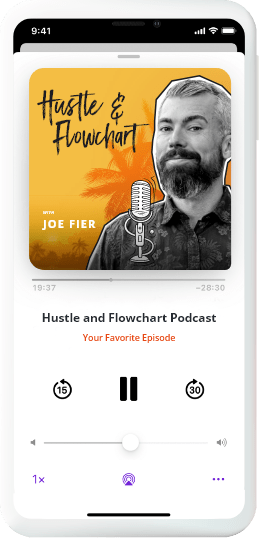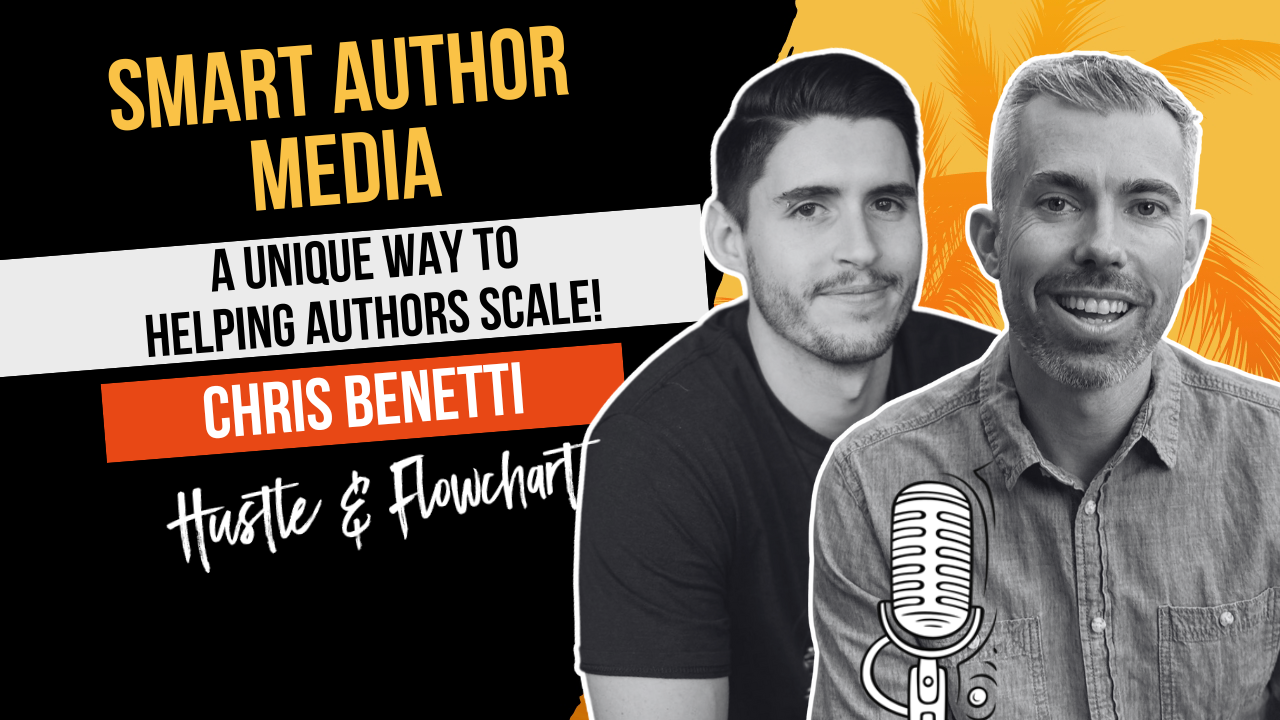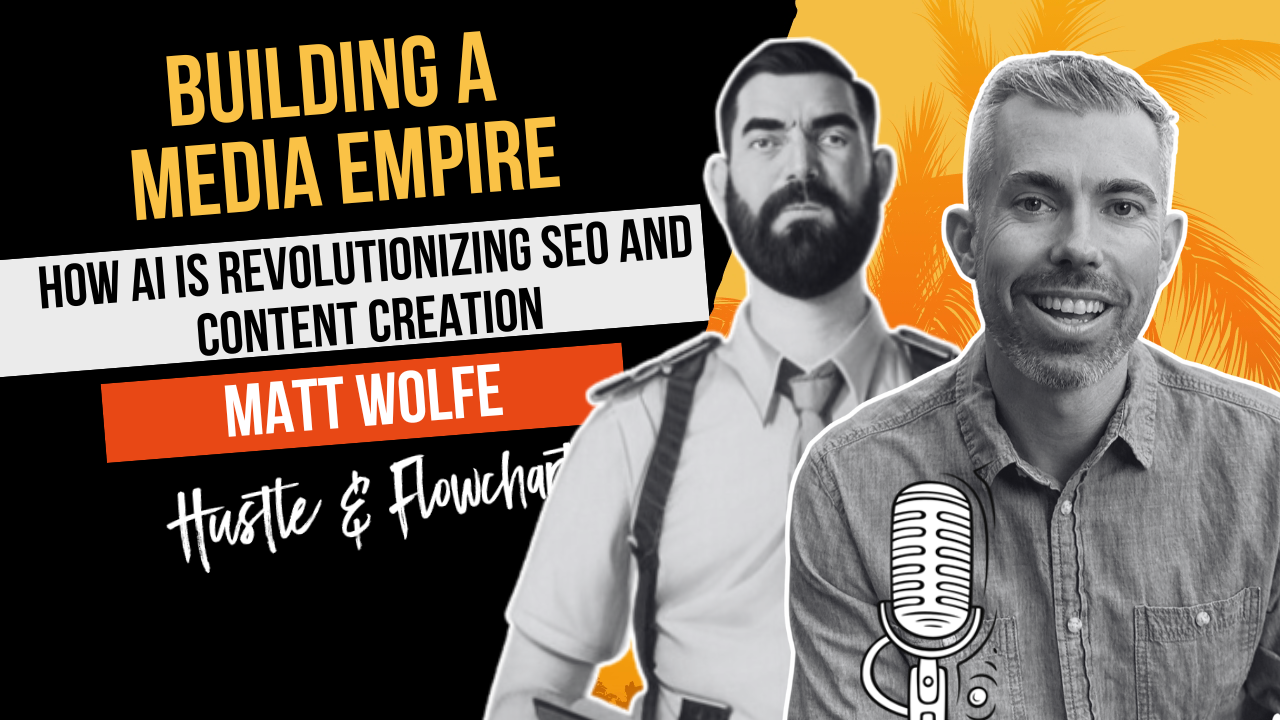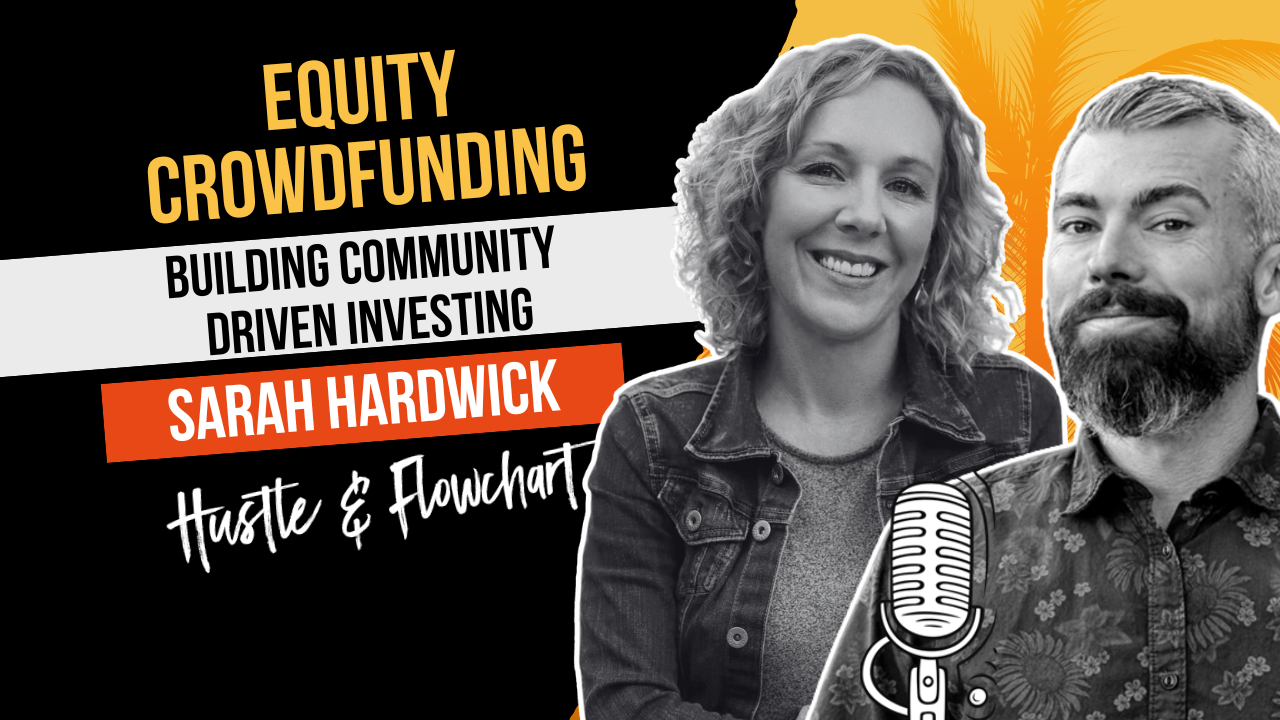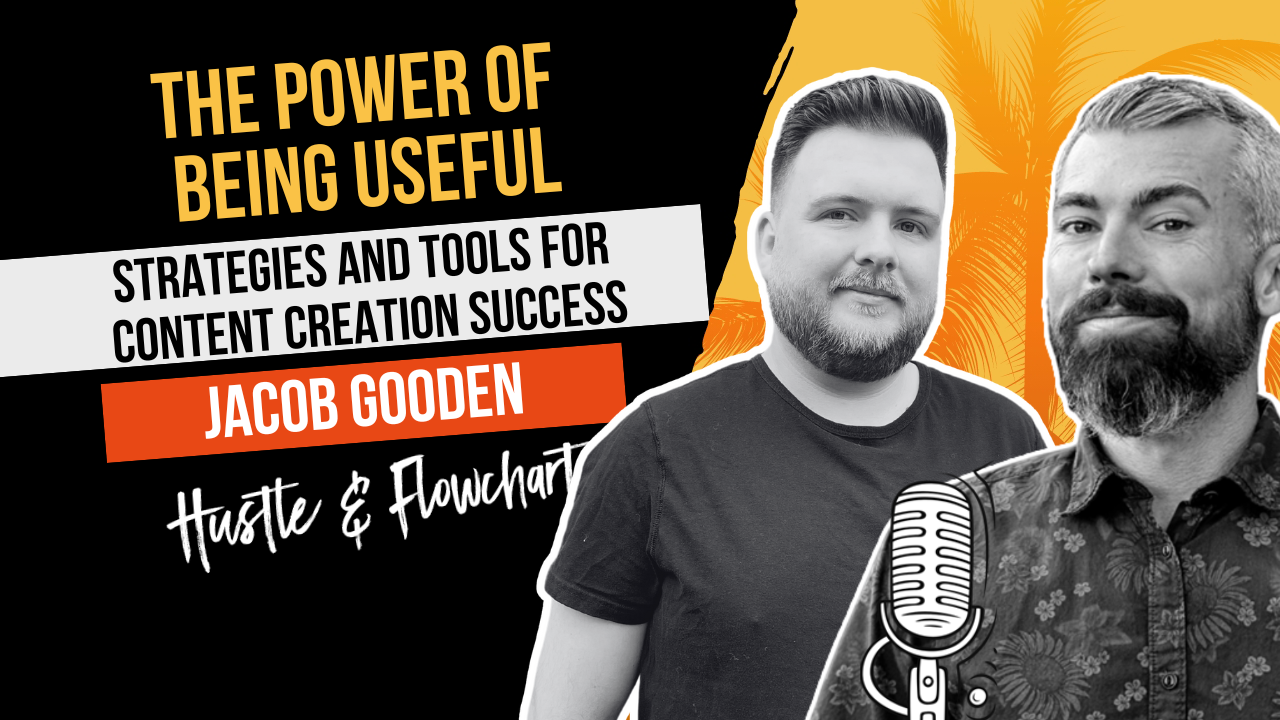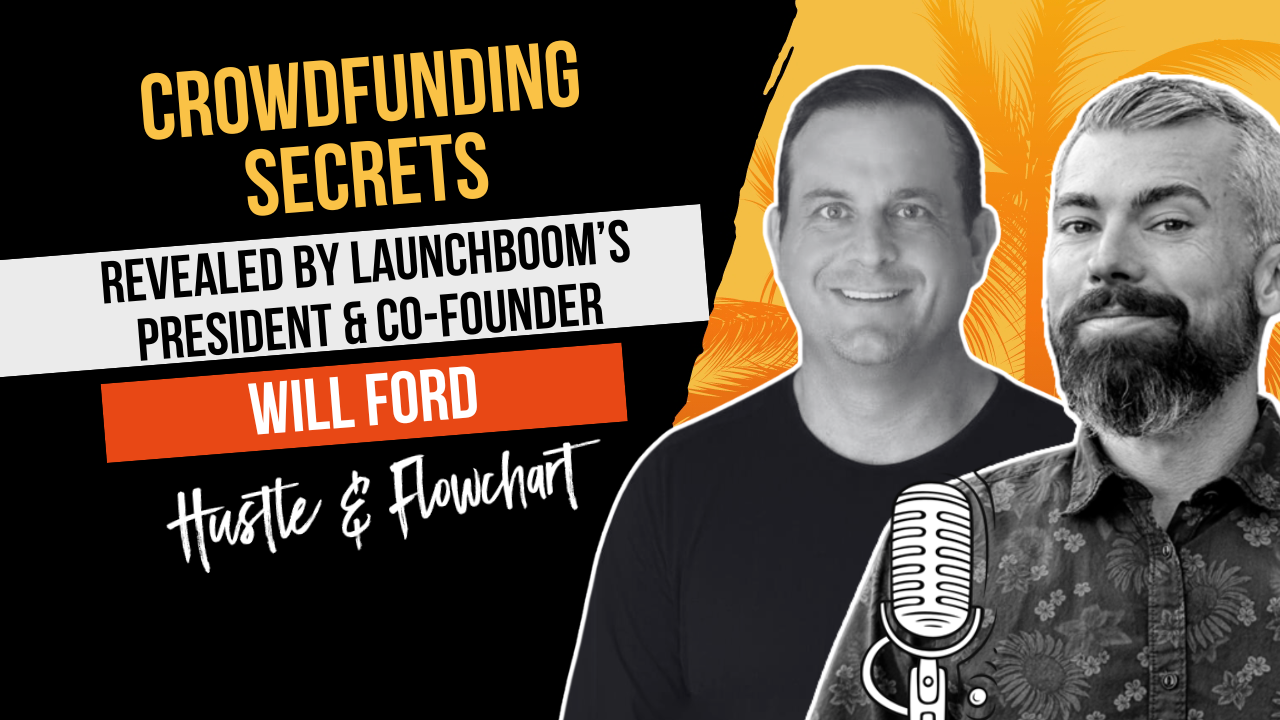Unfortunately, the connection between David Allen and us was a little spotty at times during this call. There are points in the call where the audio quality suffers a little bit. However, the quality of the content in this episode will still blow you away! Don’t let some slight audio hiccups deter you from tuning into this life changing information.
One simple question took a 9-year-old boy from wanting to be President of the United States to a completely different path of enlightening millions. Thankfully, David Allen took that question to heart and the Getting Things Done (GTD) method was allowed to be born.
After years of field research on productivity, David scored a position with his own productivity mentor, Dean, by handing over a referral to his newfound teacher. Partnering up to experience Dean’s “personal information management” system first hand gave David all the inspiration he needed to create GTD.
In this episode, special guest host Marx Acosta Rubio joins in to uncover David’s five-step GTD method, advice on discovering your true life’s purpose, definition of productivity, and beliefs about the link between productivity and spiritual discovery. If a productive and focused mind is what you crave, be sure to check out this podcast with Marx Acosta Rubio and this episode with Brad Spencer.
“I haven’t had anybody give me any reason that halfway in between works.”– David Allen
Some Topics We Discussed Include:
- Is the secret to success best discovered by taking a nap?
- These are the types of people most attracted to the GTD method
- David’s definition of productivity is simple-achieving the desired result
- Once you can get to the “why” of the goals you believe you want to achieve, surprising shifts to your goals themselves can happen
- Does productivity actually lead to spiritual enlightenment?
- Once you accept you are a creator, you can get on with the process of intuitive prioritizing
- Of the five steps in the GTD method, this is the one new adopters tend to struggle with more often
- If you’re struggling with adopting GTD, the answer is usually in your list (or lack thereof)
- David’s suggestion on the best tool to create your GTD lists
- The question that shifted David’s trajectory from the presidency
- What exactly is a scuzz factor?
- Why pigeonholes are meant for birds and not your context lists
- When your creative process slows, it’s an indication it’s time for more of this
- The shift from stress minded into options minded
- Can productivity smell like a leather wallet?
[adrotate group=”3″]
Contact David Allen:
- Reach David and his team on his website
- Follow along with the GTD method on Facebook
- Get inspired by GTD on Instagram
References and Links Mentioned:
- Getting Things Done by David Allen
- Getting Things Done For Teens by David Allen
- The 80/20 Principle by Richard Koch
- The Power of Habits by Charles Duhigg
- Breaking Rank by Steven Coutinho
- The Secret Life of Trees by Colin Tudge
- 52 Productivity Principles for Getting Things Done by David Allen
- Making It All Work by David Allen
- BJ Fogg’s Tiny Habits
- Marx Acosta Rubio – How To Achieve Massive Success In Whatever You Do
- Brad Spencer – How To Find And Focus Solely On The Things That Suit You Best
- If your own GTD “weekly review” has you feeling stagnant, maybe it’s time to partner up inside the Advisory to get you into action.
- Transcript coming soon!
Subscribe & Review The Hustle & Flowchart Podcast
Thanks for tuning in to this week’s episode of the Hustle & Flow Chart Podcast! If the information shared in these weekly conversations and interviews have helped you in your business journey, please head over to iTunes, subscribe to the show, and leave us an honest review. Your reviews and feedback will not only help us continue to deliver great, helpful content, but it will also help us reach even more amazing entrepreneurs just like you!



Transcription
Joe: Hey guys, how you doing? And David, thanks for being on the show here.
David: It’s my pleasure. Thanks for the invitation.
Joe: For sure. Well, yeah, Marx, he can give it up to you there for the connection. And, thanks for coming back on the show for the second time now.
Marx: My pleasure. Thanks for having me.
Joe: For sure. Well, this is a fun episode and I feel like a lot of folks have already read the book your book, David, Getting Things Done, probably the previous edition. These maybe all of those different additions you have in your office. They’re differently, which is, we talked about that. This is going to be interesting because I feel like selfishly I have a lot of questions. I know Matt definitely has a neoplasm in different ways. So, yeah. Let’s, let’s kick it off with. Well first, how do you guys go back? You and Marx?.
Marx: I hired David to be a consultant back in 2001. And actually you remember this stuff and you gave me your wallet. I told you what to do. All that. It was like we took you to a bunch of shots, shots, shots, and so I want that wallet. And you said, well you pay for lunch. I’ll give you the wallet. I said deal. So I gave us one and then I just became the biggest raving fan. And if not for GTD, I gotta tell you I probably would not be living the life I’m living today. And so I think David is probably one of the most intelligent, creative, compassionate for looking at individuals I’ve ever encountered. And he’s the only guy, actually one of two guys who I can honestly say that I’ve been a big student does since 2001 and have not been satiated by his material. In other words, I keep coming back to it and the more I go back to more layers, get peeled away and the more I understand, it’s just the more I think I understand GTD, the less I really understand GTD. And it really is like a martial arts. It is unbelievable. Just, I mean. Wow.
Discovering The Method
David: Thank you. I appreciate that. And the truth is, same for me. I came across it.
Marx: That’s excellent. Yeah. So you just said it right there. You kind of came across it, I guess what was the catalyst or I strike it a little, there was probably a little bit buildup up to this point where you kind of came across this.
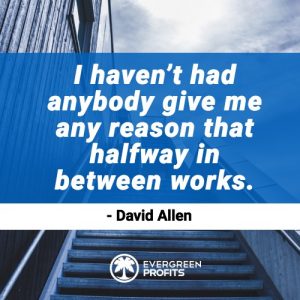
David: It had been made next action decisions about every month. I was thinking, Oh my God, Oh my God, I wasn’t in pain. I, I thought I had my shit together. So. But when he took me through this process and I saw how much of a this, so that opened for me and how much with changing my own energy and clarity and focus and control of that created that I didn’t know I was missing one. That is really super wicked way. Cool. So I began to take his process. I sat with Dean and spent quite a quite a lot of time with him. He had uncovered that process sent with the clear that neck so that organizations should actually feel through significant change. There’s so many have so many old business stacks and constantly in their heads trying to make a change and have some new vision or some new future.
David: It’s like swimming in quicksand. And so he uncovered that as a process. Just those two things that are still core elements of getting processes. And what’s. What’s Kinda funny is that that was so powerful. I began to use that with my own consulting clients and it produced exactly the same results. And so even though I was involved in consulting with organizational change, and I think Marx. I think probably we were, we had some of those kinds of conversations with some of that consulting as well, what the truth is just empty people’s hands and having them make an accurate decision about what had their attention solve. Ninety percent of all the presenting issue because there was just so much stuff hadn’t under the rocks. It just nobody was willing to talk about or be aware of or to get in control of in terms of how do I manage this thing that might patient.
David: Anyway, very long story very short, but that’s. That was really the impetus for a lot of this that then I started to develop that and it became its own process and became its own deliverable just that we call the personal information management or something. We called it way back then, which was just a, you know, I built figured that generally a couple of days if people might have actually walked through this process. Then over the first decade or so, you know, I’m refining this a lot to really define what the whole methodology. So again, Short version of a very long story.
Joe: No, it’s amazing what you said there, just the unpacking of your brain. That was the very first thing I experienced, especially when Marx, you taught that to us. I think both of us, you know, Matt and I read your book years and years back, but never fully applied it. Sorry. But until marks. Yeah, we were working closely coaching with him. That was the very first exercise was unpack everything you can think of and just that weight and just immediately got off of my back. I know my dad probably had a similar experience.
Matt: Are we supposed to be sharing Marx’s proprietary processes? Well, GTD, but just the bill. That’s fine.
The Power of Presence
Joe: So, yeah, no, it’s amazing. And in Marx, I mean, what was the, I guess I’m curious about you as well, how you’ve applied this shift in your life since learning all the GTD methods.
Marx: Well, I think the best way to actually answer that is probably to ask David this question. So you talk about all the time about how people are addicted to stress, right? Somebody says why don’t they get this and your responses during states of distress. Right. That’s why they don’t, they can’t imagine their head clear. In your experience, what would you say…What is the most productive person look like
Marx: to you? You know, an entrepreneur, executive CEO, based on the guys and Gals, because you’ve coached thousands if not tens of thousands of people. What do they look like when they’re most productive? Meaning they’re producing the desired result.
David: They’re fully there, so there’s that.
Marx: Totally priceless. Is that when you. Is that when you came up with the GTD is not about getting things done, but about being appropriately engaged with whatever it is that you’re currently doing?
David: Yeah, so that you can be present so they can be president. You know you could be getting better. You’re not thinking about anything else when you fire somebody much better if you can think about nothing but how you’re going to engage with them in the most positive, productive way. Anything else on your mind with you? That’s why you hit a golf ball from. That’s the way to watch your daughter play soccer without being on your smartphone.
Marx: So then why do people have this misconception that being busy and being active and you know, rush, rush, rush, go, go, go and you know, because we see these scenes, entrepreneurs that tell us, you know, ignore the minutia work really hard, you know, crush it, whatever the case may be. I don’t find them to be the most productive. What do you think about that?
David: For some people, that’s a balance. For them, that’s where their juices and they’re able to go do that. So it really is. So it’s really more a very personal issue. I understand what you’re saying, in general, know most difficult aspect of the busy factor. Very, very sunny, very easy to get. Very easy for you guys to tell yourself. I don’t have to.
Joe: I’m curious, with the presence in social media on all platforms, obviously smartphones and everyone’s faces really when you’re walking down the street, how is GTD applying to that these days? Is there a change?
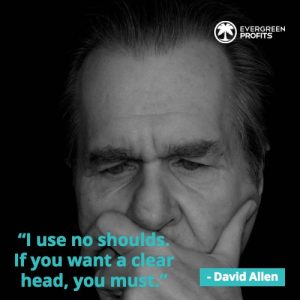
Matt: So let’s, let’s go ahead and, and really quickly, I want to give anybody who maybe doesn’t know what the getting things done is. Maybe, sort of three people…
David: How dare they, those three.
The GTD Method Rundown
Matt: Let’s give him a quick walk through just so we. So as we go through the rest of this podcast, they kind of have a little bit of a reference to what we’re talking about.
David: I’ll give you the two-minute version. Basically anything that has your attention, you need externalized. So write it down, record it, stick it out somewhere in some sort of a trust bucket. Better sooner than later, you need to look at what that is and making very clear decisions about what it means to you. Is it references a trash can, something to move on, what’s the next action you need to take and what outcome are you committed to finish? That’s the clarification step. The first of all is capture, then clarify what we captured very specifically. The third is organize and results.
David: If you can’t finish it that moment, then you need to keep track of the phone calls you need to make for your sister’s birthday. You to keep track of. That’s something I need to stop. So you need to then keep track of these things that you can’t finish the moment so your brain gets to let go of remembering and reminding and you’ve got to trust the system. Do you deal with that? So step three is organized, which put the contents of your thinking system. Step four is to make sure you’re looking at your system consistently. Going out for errands, thinking, let me turn this in to your life, partner about the business of lifestyle. Sit down and open your list at least once a week. Look at all the projects you’ve got to see how you’re doing on each one of them so you feel comfortable and then you engage your attention to focus your activity based upon steps for, okay, now I’m going to do any of that. We’re going to go do one that says out of his business. So it’s really about getting stents we all go through if you want to get your kitchen under control your company, have the control of your consciousness is a capture, clarify, organize, reflect and engage process. So I just identified all that conscious and then gay people, a lot of more specific tools about how to really apply that across more sophisticated aspects of.
Joe: Yeah, no, I love that. And you mentioned, so the capture phase is being the first time. That was what we were talking about. Unpacking your brain, for you personally, have you seen a, a very specific tool or safari? I guess how does someone pick a trusted tool that they can capture these and do this whole GTD method?
David: Nothing beats pen and paper. Wherever we might have an idea and you want to capture. Can’t beat that, no wifi required. No batteries required. No. Have no clicks required for every click. Even on your smartphone, you’re going to lose 60 percent of whatever, especially if you are ADD or ADHD. You need low tech. You need something right there. I’ve got my pen and paper and write on my desk because God knows what’s going to show up. You don’t want any barrier to entry with the capture process, but it needs to be something that is fine as long as you got to look at it again somewhere and not losing.
Joe: Yeah, and that’s what I’ve noticed at least personally. That is okay. So yeah, if someone’s relying on smartphones, I know I have many of us have. that’s whereas you just said, just the typing alone. We’ll just get that thought. Half had that thought is just falling away. It’s kind of trickling down in marks is that wallet and actually a…And David, is this your original wallet that David actually gave you?
David: Oh God.
Marx: beat up because I actually had to buy one afterwards, but this is the OG. This is the original wallet.
Marx: It’s a. it’s still smells like nice leather. So I have a question for you, David. Everybody that I’ve talked to about GTD has this idea that every single project you’d go on your list and everything will action and it goes on. Your list must get done. I have found personally that over half the stuff I put in there just doesn’t get done or it goes to something. Maybe I eliminate it. Is that part of the whole GTD phenomenon is that even though you write some things down, they just don’t get done because it becomes irrelevant.
Options Versus Stress
David: Yeah, or they just never make it up to the top of the list. You know? How many of those books behind you have you not read yet?
Marx: About 20 percent.
David: So are you stressed about options? Or, is it if you’ve got time, if something rings my bell time, I’ve got a library. You’re looking at your list, like, do you eat everything on the menu when you go to the restaurant? I don’t think so. You’re looking at the options. Well, maybe the most part my list or just their menus of options of things to do that I’ve come up, but I just need to be making sure I’m looking through all of those efficiently enough to feel comfortable so you know, I need to make sure I track all of that so I keep renegotiating and something either good move someday, maybe later on. Basically this lie that I finally said, oh screw it.
David: Life went on. That was a great idea back then. But you know, it’s so cool. So no like that. I think it’s just the more options you have, the better. I mean, what if you only had six things on your list? They only be crap, you know, or you may not have the right thing. The perfect thing on the list of exactly where you are, you like doing so. No problem with having a big list. The truth is, and you know, once you really get it and you probably discovered this March at some point, some part of you psychologically will sort of of when you’ve got a quota and it’s time to stop creating time to start completing sort of six month cycles, just kind of creative ideas and then some part of my seven year old inside of me and my creative process slows down but my speeds up. So I think there’s a natural rhythm that we all have about creating. And so I think once you get used to having this all externalized, that’s a more sophisticated level of sort of areas.
Marx: Yeah. You’ve been saying that ever since 2001, I know it’s in your book and I’ve heard you say before and you’ve also referred to the skus factor right in, in different asks, you know the teeth, you know, some people have can have 1:30 days I’m going to have 10:30. There’s some could have you know, brush your teeth after every meal. Some can weigh up to two meals.
David: Yeah. So it depends on what your comfort zone, how much unprocessed stuff you can see. I always say if the good very right up, it disappeared. Everybody’s not a minute volume of how many things are comfortable hanging out with, without refinement process that are organized.
Marx: I’ve had this discussion with Mr. Koch’s rule. The 80/20 principle is a big 80/20 fan and we’ve had discussion about your system and I said, look, I’ve. I’ve tried to blow it up. I’ve tried everything. I’ve tried not to do it. I mean I’ve tried to prove David wrong and I just did the opposite happens, right? The much I proved wrong in them. My realized how right in how in Charlottesville it is and isn’t it? Would you agree with the statement that the only real way to make an intuitive priority of what would be the 20 percent that makes the biggest difference? It’s to see the entire options, what you have available. Without that, you can’t make those choices.
David: Not only all the options, but all of the horizons that these options come from. So you also need to know to what degree are you clear about why you’re on the planet, what their core values of life would work would be like five years from now, what are the things that you need to accomplish or finishing the next year it as well as all the things you need to maintain your health and your finances. Yeah. So, so there’s all those, those six horizons that we have all these different fitness. So the more that you’re aware of what those are and have mature sufficiently in your own consciousness, then you’d still. It’s that. It’s that Matrix essentially the vertical stuff once the important things and all the things that need to align up. So they actually like finishing the projects that they can meet my goals, which are going to make my vision happened, which you’re going to fulfill my purpose.
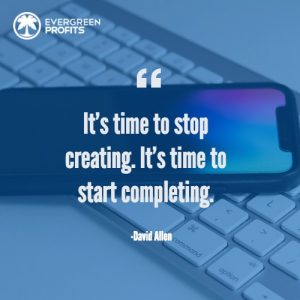
Matt: Now can, can we walk really quickly through the, the sort of process that somebody would go through. So I have all these ideas. I unload them daily. And I just have this giant list of ideas. I know there’s projects and there’s tasks and all that. Can you kind of explain the organization of what I do with this giant list once I have it?
It’s All In The List
David: Yeah. Well, first of all, I needed to make sure you have the right list. That’s the biggest reason most people don’t really. They haven’t actually gone through a real process of clarification. Actually, most people’s lists or things like mom,
David: Bank, or start up or find vp of marketing so understood. That’s great. They captured that, but they haven’t decided exactly what the next action and what’s the outcome here.
David: And so that thought process that’s really in a way probably the most subtle and sophisticated. You can’t. There’s no software. That’s good. Yeah. I’m sorry. They’ll give you a decision for you. Keep track of all the things you’ve ever done for my birthday, but it’s not going to make the decision about what
Matt: Right.
David: You still have to do that, so you still have to make those kinds of decisions and outcome decisions about the things that have your attention. That’s usually what’s missing. Once you’ve done that, that starts, but then make it much easier to describe what it’s called your sister about mom’s birthday because the next step with your sister’s phone number, handy thing to have a very easy to engage with. Just looking at the column that says, mom,
Marx: you know, it took me a while to figure this out. David. Maybe I got it wrong, but you know, I used to have my context set, no computer ad calls, errands at home, at office, whatever, and then had to, had to sort of try to fix the actions into one of those contexts. It took me a while to realize I could just create context and believe them at will. So my context are fluid, you know, we were on a 60 day trip and so I was like, you know, at the Willard Hotel tell, you know, and then when I didn’t have just deleted the context because I didn’t need that location to remind me that had a list of actions to take. We have you found that to be. Do people realize they can add and delete context as they need or is that something you found people would get stuck with?
…And How You Phrase It
David: Correct. Because they think that’s too rigorous. I’m very clancy’s, Wonderful Lady and Ge Ordinance or context by emotional payoff. I read that article. Yeah. So cool. I’ve got a context called creative writing computer list, but it’s a very different psychological working on that. Actually one of those articles. Right, but that requires a very different kind of timeframe, the psychological context and I found with, I sort of morphed that if I imploded that into my computer, I didn’t even want to look at the list because they were, there was, there was too much, there were too many different aspects then I had to consider to make those choices. So it created this barrier of entry and then I went on a graded at creative whitening at computer plus some and my future because then I wasn’t, I wasn’t resisting you to list in the light in the right context. So yeah. But it’s pretty, it’s pretty sophisticated level.
Marx: So you, you said before that things either attract or repel, there is no in between. Right. And so, and, and I think you may have told me that when something’s repelling versus attracting, that’s when you have to really think deep as to why that’s occurring. Right. So you just give the example of some of those repelling at creative writing. And like for you, you have, you have, you start a lot of projects, at least it used to with r and D. Right. And that’s your look into, and I just had to but I found for myself learn was more read, more attracting than r and D as an example. Or do we then figure out that if there is, if something’s repelling us, what do we do about that? If we look at those,
David: By the way, if I put learn, I’m going to stop. So what works for you wouldn’t work for me on the cruise that’s I’m living in Amsterdam. I wanted to learn. I learned Dutch, I got a big vision but I have to have a project called get learning Dutch on the cruise. So it’s like I just need to make sure that how I’m learning is appropriate in some sort of thing. So that’s why someone, again, to your point mark, very unique and you need to be very creative with what works.
Joe: So I want to go back really quick to the context about emotions and then also bring up the whole idea of task momentum. And maybe this ties into the two-minute rule that you have as well. Would you, because you know the two-minute things, you knock them out as the right in front of Ya. If you can get it, get it done, get it done. Would you arrange your day more on emotion? So exactly what you just said, creative writing. You have that headspace that time of the day or would it be more on task momentum? Say like by duration. I know some folks are using the method that way.
David: Because it changes. So I think what you’re really getting, my, my personal style is falling on spontaneous, sensitive. I planned with my own plan to get it off your mind. That’s all I do is help free me up. Do what I feel like you are using the GPS system sort of edited, like trusting that intuitive choice. That’s, that’s the key. Do I take a nap now? You won’t see on my calendar at all but I take a nap but you do it. But I feel like doing it but I just have the freedom to do that. So it’s not a nap to avoid in my life. It’s a nap to enjoy a nap.
About Intuitive Choices
Marx: Because you know what you’re not doing right, because you’re ignoring the list that you know what the list is. You’ve looked at it.
David: Yeah. I go check everything and then go take a nap. I go check everything into the computer. I check every one of those things. It’s that one. But the truth is as long as you have a mature and intelligent conversation with yourself, just keeping track of all this stuff, planning as little as you can get by with, gives you the freedom. The freedom that I think is one of the most elegant parts.
Marx: Real quick follow up on that. So David, why do you think that is? I mean, you know, look, you have changed the world, right? In which I know that you, you’ve had your mind map and we’ve seen that you literally changed the world right in and I know you’re a humble what have you, but millions of people have been affected by GTD. It’ll continue even after you’ve transitioned into the next level and you know, you’re sort of this easy going, “Lazy Guy,” right in the being in Amsterdam, you know, loving life, not doing much and yet you’ve been able to manifest a global change. Is is then that, are you able to do that? Go from the dream to the reality because you’re relaxed and what is it a try? What is it you say, let go, let God or something of that nature, you know, what is the secrets right to your monumental success and happiness?

David: It’s still there. It won’t go away whenever you can get access to that. So a lot of what the GTD process was, it made it a lot easier to be less distractions in my role so I could listen to her voice is probably considered even some people in the world and still my, my mission and vision right now is to make sure we have world complaining or ever agent. What’s the outcome? What’s the next day? And if people can learn that teachable seven, eight, nine, zero again can changing, you know, if you’ve heard of emotional intelligence, let your mind most people, whether they’re changing lives, we did that change on it, might not pay attention to what your mind simply says expressed.
David: But it’s trying to manage internally. But this office, so most people are trying to keep track of in life inside of this office. And it’s like all of them that involve the sheep around being driven my legs. Just being conscious of that stuff. But I suppose a lot of, a lot of my business, yes, I had visually cool this kind of work around the world when I was nine years old, like area of any relevant business at Abraham Lincoln and I believe so. I’ve always had that sense that wouldn’t it be nice to do that kind of thing? Have no idea.
Marx: It’s interesting. David wanted to be president at one point in time. That was his dream. He was nine years old at the time.
A Shift Or An Alignment?
David: Somebody asked me a very smart question. He said they’d been wanting what that. What experience do you think that would give you? And the smart question is everybody on it identifies their fantasy. They embarrass themselves, but then ask themselves, why do you think? Why do you want to be the greatest? Why you want to be the win, the Nobel laureate for whatever. Why do you want to be famous? Because people have. What’s the experience you’re looking for? And I hadn’t honestly answered that. The experience was I felt like I had things of value to share with people. My very good friend of mine said, so David, what could you do right now that can give you more? And I walked away from that conversation. I remember very specifically, very clear about what we do that
Marx: So quick question as a follow-up to the six levels of horizon and we’re just talking about now when celebrities like Will Smith, Robert Downey Jr or Howard Stern, Drew Carey, you know, because those are well-known guys. They’re all GTD years, right? For those listening skills, the guys at all with GTD, I don’t know if you’ve coached them personally, one of your coaches have coached and do you find that people who are more “successful” in a sort of living a bigger life, making more money, whatever, have you may have either bigger or clear 600 of horizon versus somebody who isn’t or doesn’t have that level of success defined by their own terms.
David: I think they have an interest in that. They’ve actually been finalized yet, but they’re curious about what you’re eating on the best food. You’ve had the best wine. So there’s, I think there’s a version of it is this, did you know that sits inside of, of the people that what drove them to get to where they work with, but I think those are lifelong learners.
Marx: And you said that you told me once I heard said this many times before, that those who are most interested in GTD, first of all, they needed the least. Right? You’ve been talking about those who need the most are less inclined. Nothing that’s normal for most, but really the one common factor that you said you found that most ggd practitioners who I would consider to be more successful than most by definition of my view, is that they’re lifelong learners, right? They really just are always, you know, finding out like you say how to get from a to b with the least amount of effort or did to do that. I’ve got to learn
David: And it could be I want to leave work earlier or I want to have more time to paint or I want to have more. Not necessarily be busier maker more money. I get a lot of rights, so it’s right or wrong about what it is.
Marx: Yep.
David: Yup. As you know, what activity he’s got a lot of baggage is a word that just means support. Carter slept whatever discipline and rigor I go. Come on, you go to a movie and some unproductive. No, come on, you take the afternoon. I want to relax this afternoon. If you don’t relax, that’s an unproductive back in the afternoon, so productively simply says, achieving the desired results, so what’s the desired result? So that’s a lot of what people are attracted to, people who are into desired results that have not been achieved yet. Come on, all of us from it. The more you can get, the better. You better get to open up new opportunities to influence the world in a way you’ve never done before or do express yourself or to have a sense of fulfillment you never had before. So yeah, I suppose that’s a hallmark of a life.
Joe: I like that. And to go back really quick hits, it seems like this is a great way to just find your flow and where you should be focusing your energy. Like you said, the spirit, however, you do that
David: Guys it never gets easier. I believe that, you know, that’s like martial arts or it never gets easier. It just gets more interesting and more and more sophisticated with what we learned. And so it’s not about easy, as I say, you don’t have to like the life you get about your money. So I’m not a motivational speaker. I don’t care how you feel for what are you doing with that piece of paper on your desk, what does it mean to your victim of it? And so I just found the little key to get people back in the saddled with their life. And that could look like a lot of different notes. What’s a lot of different things for Bill Smith, but it’s the same principle. So what was fast afterwards? Events, you know, we just launched the book and it is as sophisticated as the first edition of the book. Get all the same stuff in there. It’s just, it just looked. A CEO needs to empty their briefcase for business cards. I got in all the notes. They took it board with you. Figure out what to do with a nine-year-old has to guarantee his or her path. Find the note what the teacher needs signed by mom. Same thing. Neither one of us forgets to do that. There’s great.
Joe: I just imagined as a kid, it’s. It’s an amazing tool for a procrastination. I would imagine it would squash that right there and in its phase, but think about things like. I’m just thinking the emotional baggage, like bullying and other things that kids have to go through. Late elementary and middle school, tough times, high school. That’s a perfect
David: to come on this. As I say, there are no problem, so how subtle came back so kids got a bullying problem. What’s the project? I need to handle this. I need to find some way to feel better at the same way. Just think about that, that they actually started to take whatever reminder levels and we do that, especially if they’ve learned that at age and learn that process.
Always Room For Improvement
Matt: I have a question about your book, so I believe you republished it in 2015 was when it was re-released. Now, what changed between the original release date and the 2015 release? What, what sort of things happened in that timeframe that made you decide, okay, I need to make an updated version of this?
David: Yeah, well 15 years, but essentially if you read the book in 2015, if you read the original edition, and so there were the two things. First of all, I wanted to get rid of most of the references I made me. I wanted to make some technology references. People didn’t realize how big island about one of those things that could be very powerful tool. So I referenced those things. Now I took out all those references are changing every weekend or whatever, so I didn’t want to add any kind of thing and most people got so wrapped around the tool as opposed to the process. Second thing that changed was the audience first edition, that one was really addressed to the high, the high profile, fast-track professional because they were the ones dealing with the tsunami of emails and at the most interest in employee by training and so that was really focused on division and so a lot of the vocabulary and the language, even though we tried as best we could to make that as evergreen as possible if possible so he could have lasted a long time, but then at a certain point, I guess the third thing was that over those years I’ve discovered that the principles of GTD had more subtlety that could be better.
David: Explained that with some twists in the vocabulary. For instance, I changed collective capture, right? I changed process to clarify, I changed, review, reflect, and I changed to. So if you think about that, the subtlety of those words make a difference and expands the nature and subtlety and simply eliminates because just has kind of a passive idea to gather this stuff you’ve already captured is wait a minute, what are all the things that I might eat? So there’s an expansive, more of a more of an expansive and creative aspect of the process that I wanted to clarify better. So I changed some of the language but methodology.
Overcoming Resistance To The Method
Joe: Yeah. I think the big important part, I know something that I have improvement to happen, you know, in, in my own process and doing this as the weekly review and making sure, you know, everything is staying on point. So does that involve. How would you, I guess, look at the Inbox, all these captured ideas that you speak of here in that, is that the weekly review element of it or would you.
David: No, the weekly review is ideal. You do weekly or new after all of your inbox. Got It. Yeah. I’ve got several people, a good friend of mine who he knows he doesn’t clean up on Thursday night, Thursday night he gets everything. Email, mail, physical. So there Friday morning, first two hours, elegant week it starts with. I wouldn’t make that a necessity. Basically anytime anybody anywhere stops the world that takes an hour, looks at, wait a minute, what are all the things that let’s go at whatever level of gay will significantly. It’s the biggest leave and it’s. It’s probably the most challenging habit. The bill don’t feel like the load scraper.
Joe: Yeah, that’s definitely a. and I feel like there’s a personality thing there, but it’s a, you know, I’m sure there’s a habit that you form a would you recommend a way to. And this is a kind of a selfish question, a good way to instill this habit of GTD in everyday life
David: for folks who are kind of resistant. I know that’s a big question. BJ Fogg. Tiny habits. Great. Charles Duhigg are fabulous. Great. So there’s some research about how to, how do you actually change that and there’s, that’s great. Available. Generally speaking, you need to get used to what it’s like if you’re uncomfortable with, you know, again, just back to where addiction, assessors, willingness to tolerate. How many females. I mean I know we’re to roll sometimes. Sometimes I go through three days, Greenfield for female medics, so as soon as I can hold a lot back when I’m not doing anything else, I’m zero, zero want to, once you get used to that, you came. What’d you get used to, what it’s like taking showers and get you back to that. So that’s the asset. Essentially building a habit, you know, raising the bar in terms of what you expect and what you feel comfortable with. Unclarified organized stuff that you know, so that’s a big game. Just keep going, keep going, keep going, keep coming back on.
Marx: Interesting. Right? Because on the wheel we just took a 60-day vacation and you know, the whole point was, like you said, the outcome was to engage with the family and the kids have experience and seeing all these components and without GTD, there’s no way I could’ve done it. There’s just no way. I couldn’t have kept a clear head. And whenever I had five, 10 minutes, I clean a little backlog, a bride. I changed my whole context and projects and content and it was, I think it was incredible. And whenever I began to feel that my, that I wasn’t 100 percent present and slash or a little bit of aggro, annoyed, I knew I needed to do a quick review even for 20 minutes. Right. And then of course after that I felt like just marvelous. Would you say, David, that what is the greatest obstacle for those learning GTB and what is the greatest singular thing they could do? Like what’s the biggest bottleneck and what’s the one thing that if they start as a keystone habit, for example, if you know your Charles Duhigg reference, what would it be? I know you’re going to say, but just kind of curious.
David: Exactly. Decision making that decision. Those are the keystone habits over the bill to empty my in basket my keystone habit because it was awful. But I got to get back to zero. Okay. I’ll make the decision. But just because I have the habit that I’ve gotten used to obviously having that, that gets me to make decisions standard. So those are the…
Marx: Apart from the weekly review?
David: Well you can start anywhere. One of the articles I’m writing is the most important place to start for the most important thing. This is like absolutely, there is no exception to this. This is the final and Google the best place to start with. GPP definitely answered.
Marx: That’s funny. So true.
David: Find a pile over in the corner of your office cleaning drawer. Anything that’s got your attention to make a next action set. Some goal started. Anyway, all of these things we don’t do. Any one of them has a reverberation effect across all the other owners. It’s a holistic model, so yes, ideally read the book following directions, part of getting it certified coach through the process, sort of star level implementation where you’re starting, but otherwise

David: Well, you’re going to, you’re going to hear my, my schizophrenia, my schizophrenia is, I’m a very different minds do anybody with that. But if you don’t do everything, don’t get anything.
Marx: Wait, what?
David: If you’re not doing 100 percent, you don’t trust either your head or your system. That’s exactly right. Yes. But anything you do find anything better. So I bet it’s the two minds I have healthy either you know, either keep everything on an event or just don’t keep anything in your role where your calendar this and let yourself follow your intuition. Hunters and I’ll give you the phone number. She hasn’t done that yet, so I’m still keeping up the telephone and address those things. And like trust in Allah and hire a camel. Right.
Marx: So do you think that’s the counter argument for these folks that are disingenuous about the GTD process but yet keep a calendar. I mean come on and you can’t.
David: They’ve been trying to intellectualize the in between. justify halfway between either it hits the whole stuff or it’s not. Anybody, I’ve never had anybody. I’ve challenged the world for 30 years if anybody can get me any reason that halfway in between works.
David: Either it hits the place and helps you with remembering and reminding you about things and again, cognitive science over the last 10 years it’s validated these things.
David: And maintain before, remember reminded of prioritizing and add a fifth. You’re fucked. Basically,
Matt: I love this I, I’m personally a GTDer, but one of the things I find myself doing is with the GTD process and unloading my brain, I usually unload all the business stuff that comes up, but a lot of the personal stuff like discussions with my wife or something I have to do with the kids. They don’t actually make the list a lot of times, but you know from the sounds of things I really shouldn’t be differentiating. It’s just all should go. Go in there.
David: I do. I know should, if you want to clear head, you must 100 percent, 100 percent or nothing.
Marx: I love it. This is like now, now we’re getting into the Adam and Eve aspects of the GTD, right? Because when it comes down to it and the right, David is peace-loving and wonderful as you are. You do have certain standards that you’re like, look man, let’s cut the BS. Right? Because and I happen to agree with you. Obviously, there is nothing better than GTD for being productive. There just isn’t. There’s nothing better for being engaged. There really isn’t. I’ve tried, believe me, I have tried, I’ve read them all, I’ve tried them all. I try, I have not been able to be covering me and the more I tried them, I go back to realizing the efficacy and ubiquitous of this methodology and I know you’re super mellowed a bit, isn’t there of you that’s like wants to grab the world by the neck and just shake and be like, come on people just do this the right way and your life will change for the better.
David: Yeah. But I, you know, I don’t have the personality to really do that sort of thing. I kind of sublimate that a little bit and a global GTD summit. Oh, 10 years after our first GPB summit,
David: you know, basically hundreds of people from around the objective of that. It’s basically sleeping. We need a world with no budget. Who has got that? You know, there’s a part of me that I know. I just thought, you know, I don’t like feeling frustrated. I don’t like feeling that stuff. So I just go, hey, a world with no problems, only projects. I’m not going to say my wife, they all see pieces of it, but if someone said many years ago, I ran a council consultants in your professional goal is not something that if it’s something that if it isn’t something that you can’t achieve by the time you died, so okay, well cool. It’s kind of Nice for us to really identify which didn’t really make that up. That’s really been allowed to drive them from all of us. That was really sitting on all of this. What’s the sense that we knew how valuable but not one of these not wanting to beat anybody up for do it yourself.
A Spiritual Quest And A 90-Day Challenge
Marx: Would you have any question that’s sort of related to earlier you were talking about the intuitive voice in the spirit and then the mind. Right, so the intuitive voice sort of running the mine up and running itself and going from latest and loudest, would it. Would it be appropriate visualization to say that the GTD methodology allows the spirit sort of a dashboard by which to direct the mind to achieve or manifest whatever it wants?
David: Yeah. It’s really a methodology for hearing the material world really about that and so though GTD in itself in a way it’s not spiritual, it manifests principle that at least in my experience and my wife, why would yours Bridgeville planet is to be accountable for things we have created.
David: You’re going to get, reflected back what you put out. So that’s a part of what the human experience is and then once you learn that to find out who you really are and what you ought to be created. So it’s like you need to be accountable for the things. You have to clean up the mess, cleaned up the incompletions. You need to be accountable for them. Where are you now at to start? So that’s my working hypothesis of why would do it. So in that way, when I think a nine-year-old and say, what’s this thing and your collective to make a decision about what it is, what it means to them, what to do about it, I just put them back in the driver’s seat. So that’s the inspiration that I have that I go, wow. I was able to find the language kind of methodology, several aspects of nodes that have ears to hear and see the good stuff.
Joe: So what. I want to be respectful of your time. How are you looking? Should we wrap it up there?
David: Hey look. Yeah.
Joe: Yeah, just making sure. Yeah. Alright. So I guess outside of the GTD book we were always curious, what’s a, what’s a book that you might reference often or some, some guide or some kind of content that you kind of find yourself looking at once a year at least?
David: Nothing I really look at on a regular basis like that. No, they’re great books that sort of come across every once in a while. It’s like really, really, really cool stuff, but I just did a Tedx and the guy who was on stage with you also, Steven wrote a book called breaking ranks. Fabulous book about why a lot of third world cultures built in itself emits less than a man. That’s such a powerful book and it’s really common sense stuff. It’s a whole lot about positive psychological aspects of beliefs and terabytes. Second, every once in a while, one of the books like that Instagram picture of that great, fabulous. And of course, over the last three or four years researching, reading a book. Those are, those are great things and nothing else. The secret life of trees. Yeah. So, so I, you know, there’s nothing, nothing I go back to
Joe: For the impactful. Yeah. Got It. Well, yeah. Any, any other things Marx, do you have anything else you wanted to ask before we get.
Marx: I can have David for hours on end with the wrong guy to ask him any more questions because I know I always go back to GTD books and making it work and to volunteer with the principals. I always go back to David’s work if I need inspiration. I read the 52 principals that I think I need a matter of control. I read GTD. If I think I need more perspective, which David says are the rarest commodity in the world. I read making it all work. I’m constantly rereading and reapplying and we’re watching him on youtube and you know, I, I can’t stress enough that GTD really is. You know, Daymond says it’s like a martial art and I’ve been a martial artist most of my life. He’s right in so many different levels.
Marx: It genuinely is sort of the operating system to have a happier, more productive life by whatever definition you want, right? Whether it’s being just a moment present, being rich, being happy, it doesn’t matter. It is, and you can customize it for you there. It’s agnostic in terms of systems, as David says, in terms of whether you use lotus notes or Omnifocus doesn’t matter, right? As long as you can create lists and as long as you follow the process. So I think the best thing in my opinion, anybody can do is into GTD, is making a long life habits and realize that when you think you know something, you need to go back and we check because you don’t know what the way you think and these. That’s what that’s true for me and you know, and taking the 60-day trip has just solidified how incredible and amazing alive with GTD as your tool can become. And you know, and, and David, that’s all because of you. I mean, wow, what an incredible thing you’ve created. Just unbelievable. Well, thank you mark. For sure.
Joe: It’s amazing. And Marx. Yeah, thanks for making the introduction and also teaching us kind of the foundation of the GTD method as well because it’s already changed in how we function.
Marx: Why didn’t you do that foundation? I told you to read the book. We did do that. It because I’m, you know, that is not my thing. I ended that for David and his coaches. But yeah, and I mean, look, I can just share my experience right? And whatever that may be, but really for, and for anybody who is interested in it, you know, David’s got these coaches worldwide and mad they are honestly, they are believable. And just an hour with someone like meg would blow your mind just because it’s, I can’t even express grabbed the wisdom and the knowledge. She hasn’t moved it. Ask questions when she dies and they give you tips. It makes shifts that have a monumental, incredible impact in the future. You don’t even know yet, at least that’s been my experience.
David: So, by the way, guys happy to come back. And Marx, you too. We’ll come back and let’s revisit it, but especially if you guys get any feedback from happy people or any questions you have for your audience.
Marx: I think we should. We should challenge Matt and Joe to do a GTD by the book process in 90 days and then revisit the podcast to 90 days to see how they’d done it. What’s been the life-changing because I think the podcast and my opinion is to do it not just to understand the benefits come from implementation so you know that’s up to Joe and Matt to want to take on that challenge.
Matt: I mean I’m, I’m already doing the GTD stuff. I just need to go deeper with it.
Joe: You will. We will. So yeah, exactly. Alright, David, I’m really quick before we hang up, where should people go find you or find your coaches?
David: Yeah, gettingthingsdone.com has a list of all of our global partners and public seminars. A free newsletter sign up.
Joe: Perfect. Awesome. Right. Well, thank you so much. Both of you guys for your time and I’m looking forward to 90 days from now or so. I guess…Have a good one.
David: Thank you.
Marx: Thanks David. Much love to you guys.







